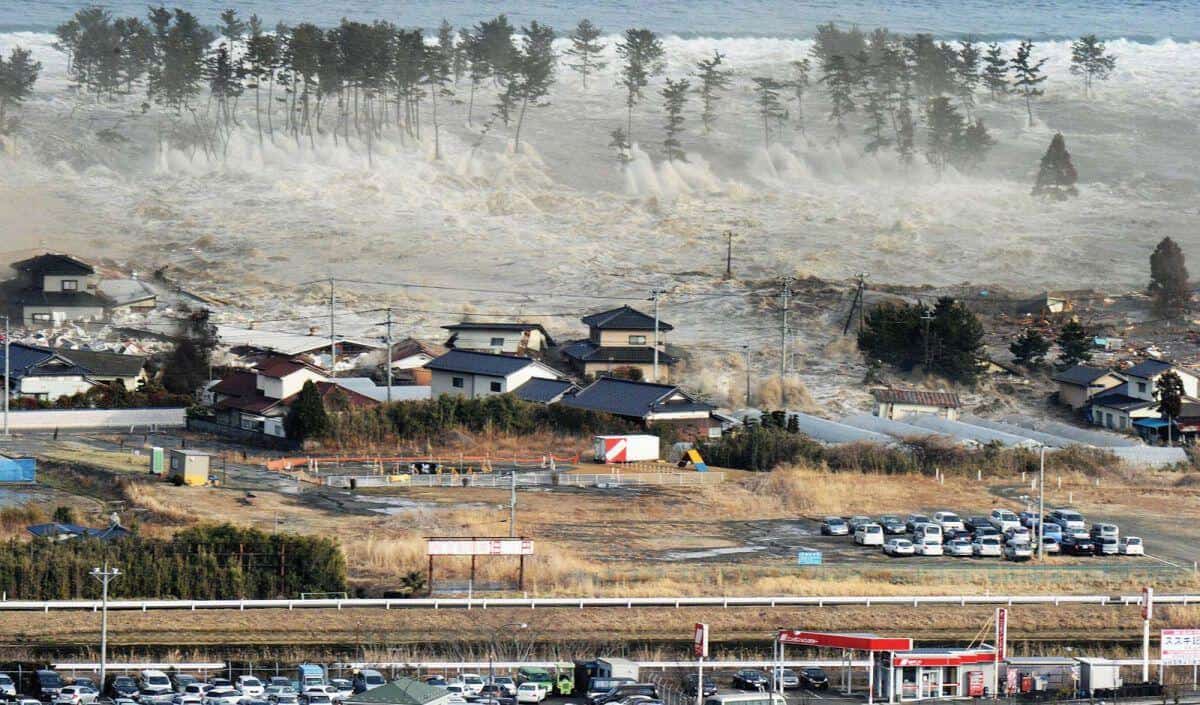The March 2011 Japanese earthquake market impact was felt globally, instantly – and then for an extended period, economically. Despite the financial impact, the personal, human toll was catastrophic and will impact Japanese families for generations to come.
The following comments are from a research house from whom we took advice at that time.
The disastrous events in Japan have dominated market sentiment this week and will no doubt continue to do so in the short-term. Equity markets around the world have been significantly impacted with the Japanese Nikkei 225 index plunging more than 16% in trading this week as the fallout from this catastrophic event continues to unfold. Adding to the tragedy already seen, and fueling further investor concern is the uncertainty surrounding the stability of Japanese nuclear plants, with Japan’s Prime Minister stating overnight that the risk of further radiation leaks has increased after a third explosion at the nuclear power plant.
Immediate Japanese Earthquake Market Impact
Whilst the initial attention of this tragedy must centre on the immediate impact on the lives and livelihood of the people affected, there are a number of short-term market impact considerations that investors continue to grapple with regarding how these events might affect different industries. We highlight the following initial points regarding the potential impact to markets:
- Japanese industrial production will be disrupted considerably due to the lack of power which has forced factory closures across the likes of Toyota, Sony, Nissan etc.
- While we did hold a more positive outlook for the Japanese economy through 2011, the extent of the devastation will hamper any economic recovery within the region, particularly over the next 2 quarter in our view. This was after the 4Q10 GDP figures coming in below market expectations.
- The quality and demand for Japanese debt has been eroded with credit default swap spreads (CDS) blowing out to levels higher than some Eastern European nations. Current CDS spreads are at 123bps, up over 75bps in the last 2 days.
- Sentiment towards nuclear power has turned negative, impacting uranium stocks around the world with prices down on average 18% from Friday 11 March 2011.
- There also may be a further issuance of bonds by the Japanese government to fund their liabilities. This will further impact the fiscal position of the Government, and while Japan has one of the highest savings ratios globally, with real interest rates virtually at zero combined with public debt over 150%, the flexibility around an additional fiscal response is challenging.
- While the Japanese earthquake is a human disaster, and will no doubt disrupt economic activity and push riskier asset classes down in the immediate term, this does not make us bearish on future growth.
- The impact on oil is net positive as uncertainty about demand has seen the price of oil weaken.
Remain Focused on the Long-Term
The factors above will continue to create heightened levels of market volatility and will present challenging conditions over the next 3 to 6 months, particularly given the uncertainty around the safety of the nuclear power plants. However despite the immediate impacts of these tragic events we have not changed our long-term view on equities and continue to believe that solid economic recovery on a global scale will be a positive for equity markets.
- The recovery and rebuild from this catastrophic event could provide a positive impact on growth and could stop the deflationary environment which could then ultimately lead to an uptick in GDP. We have not changed our forecast global growth numbers, or that of Japan (at 1.5% for 2011).
- The earthquake could ultimately stimulate global growth as the drop in Japan output is met by output increases elsewhere, combined with increased demand from Japan in the recovery phase. In our view this will directly benefit the domestic market.
- Corporate profits have recovered noticeably through 1H10, and we think capital expenditure will continue to increase given the current level of spending is extremely low. As long as manufacturing output continues to increase, we think the positive momentum of Japan’s economy can be sustained. We believe the economy will pick up the pace of growth through 2011 and eventually enter into a self-sustaining recovery phase by the end of 2011.
- Japan will likely be more resilient (assuming the nuclear situation does not intensify). The country has faced a similar event with the Kobe earthquake in 1995. While the quake in Kobe had no impact on the supply of power, it was one of the major industrial cities in Japan. And post the Kobe quake growth rates in Japan were above global growth. Unsurprisingly, this reflects the emergence of reconstruction demand in response to the damage to social capital and other assets from the earthquake.
Your portfolio
If the Japanese earthquake market impact on your portfolio is concerning you, just as we are always available to do, the experienced financial planners at Continuum Financial Planners Pty Ltd are ready to assist you evaluate the strategy you have employed, update your risk aversion profile and advise on any need for change. This is a process that we undertake regularly for our ongoing service clients: you might sleep better at night knowing that geographical, geopolitical and other sudden market-shock events are able to be managed with sound strategic financial planning.
To have your strategy and portfolio reviewed, call our office (on 07-3421 3456) or complete the Contact Us form on our website, to arrange an appointment (face-to-face or electronically) with one of our planners.
(This information is of a general nature only and has been provided without taking account of your objectives, financial situation or needs. Because of this, we recommend you consider, with or without the assistance of a financial adviser, whether the information is appropriate in light of your particular needs and circumstances.)


